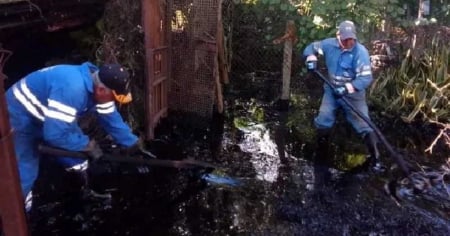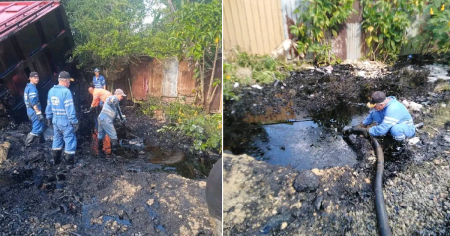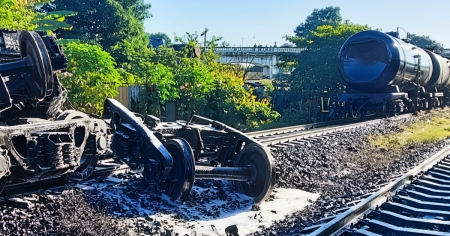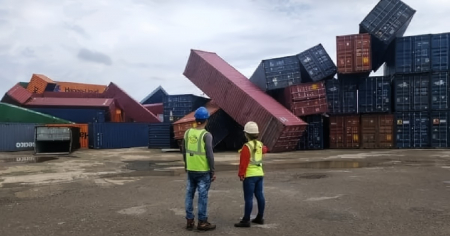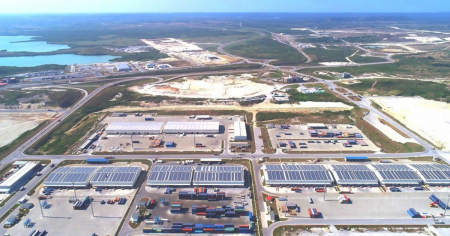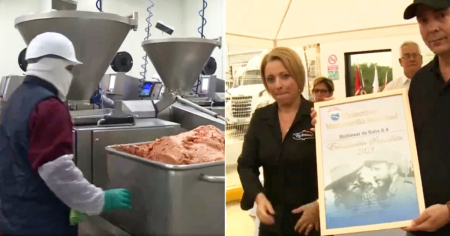In the midst of growing economic difficulties and significant social discontent on the island, the Cuban government publicly acknowledged the failure of the Mariel Special Development Zone (ZED Mariel), an ambitious project launched in 2013 aimed at transforming the country into an attractive destination for foreign investment.
It was Prime Minister Manuel Marrero Cruz, during the fourth Ordinary Session of the National Assembly of People's Power (ANPP), who acknowledged the challenges facing the Mariel Special Zone, describing the project as insufficient to meet the set objectives.
According to the Cuban leader, the Mariel Special Development Zone initially attracted significant attention but has since lost its competitiveness due to changes in the economy and wage adjustments, though he did not specify the details. Additionally, excessive bureaucracy and the lack of legal guarantees are also affecting interest in that area.
The prime minister highlighted the loyalty of the companies that have continued operations in Cuba despite the challenges posed by the economic environment.
"We will never turn our backs on those who, in complex and difficult times, also faced sanctions from the United States, did not leave us, did not abandon us, and continued to trust," he assured.
During his speech, Marrero announced a set of measures aimed at revitalizing foreign investment, not just in Mariel, but throughout the Cuban economy. “One of the measures being authorized involves a proposal of decisions regarding the treatment of foreign investment: a series of measures to relax, energize, and encourage foreign investment,” stated the Prime Minister.
Among the proposed initiatives are:
- Flexibilization of labor force hiringThe aim is to make investment more attractive through changes in employment policies.
- Currency OperationsExporters will be able to operate in foreign currency, facilitating their transactions and reducing bureaucratic barriers.
- Update of the business portfolioThe new list of investment opportunities was presented at the Havana Fair, highlighting strategic sectors such as technology and renewable energy.
- Specific incentives for MarielMarrero emphasized the need to restore the competitiveness of the area by implementing incentives to attract top professionals as well as to secure new investments in what he described as "first-rate" infrastructure.
Located about 45 kilometers west of Havana, the Mariel Special Economic Zone was designed and announced by the Cuban government as a key economic engine, offering tax and customs incentives for foreign companies.
Despite its promises, the project, which was one of the most visible attempts by then-President Raúl Castro to modernize the Cuban economy, has only managed to attract a little over 60 companies in a decade. Many of these businesses faced operational challenges due to the island's limited infrastructure and complex economic environment.
The official acknowledgment of the failure in Mariel also occurs within a context marked by scandals and internal issues that have seriously undermined confidence in the project.
In July 2024, reports indicated a embezzlement of 21 million Cuban pesos at the Mariel Special Development Zone, highlighting corruption and administrative negligence as the main causes of the financial imbalance. According to investigations, the misappropriated funds not only hindered the development of the area but also emphasized the lack of effective controls over operations in this critical zone.
Additionally, the passage of Hurricane Rafael on November 6 left a devastating scene at the Container Terminal facilities. The government assessed further damages, including lifted roofs, containers swept away by the rains and winds, and flooded factories.
The acknowledgment of the failure in Mariel and the new proposals highlight the government's urgency to attract foreign capital during a critical moment for the country. However, it remains to be seen whether these strategies will achieve the expected results in a context characterized by political and economic tensions.
Frequently Asked Questions about the Failure of the Mariel Special Development Zone and the Economic Situation in Cuba
Why is the Mariel Special Development Zone (ZED Mariel) considered a failure?
The Mariel Special Economic Zone is regarded as a failure due to its inability to attract significant investments. Despite initial expectations and infrastructure investments, it has only managed to bring in just over 60 companies in a decade. Factors such as bureaucracy, a lack of legal guarantees, and a complex economic environment have contributed to this negative outcome.
What measures has the Cuban government announced to revitalize foreign investment in the Mariel Special Development Zone?
The Cuban government has announced a set of measures to revitalize foreign investment, which include easing labor recruitment, allowing foreign currency operations for exporters, and updating the business portfolio. Specific incentives have been proposed for Mariel, aimed at attracting qualified professionals and new infrastructure investments.
How has Hurricane Rafael affected the Mariel Special Development Zone?
Hurricane Rafael caused significant damage in the Mariel Special Economic Zone, impacting the Container Terminal and several factories. Roofs were torn off, containers were swept away, and factories were flooded. This natural disaster has worsened an already challenging situation in the area.
What are the main economic challenges currently facing Cuba?
Cuba is facing several economic challenges, including a severe economic crisis, a shortage of foreign currency, high inflation, and difficulties in national production. The regime acknowledges the lack of significant progress in economic recovery and blames the U.S. embargo as well as internal issues such as bureaucracy and a lack of organization and control.
Filed under:

